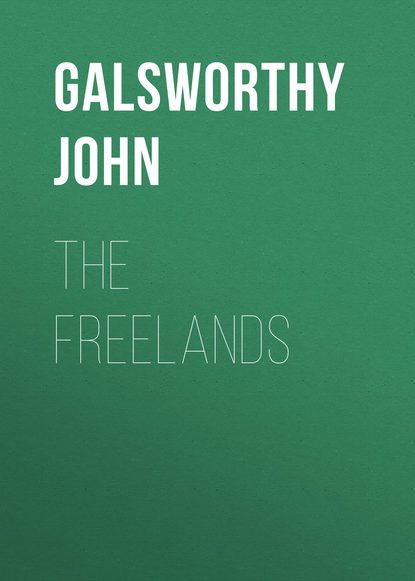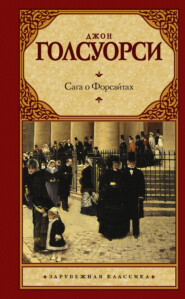По всем вопросам обращайтесь на: info@litportal.ru
(©) 2003-2025.
✖
The Freelands
Настройки чтения
Размер шрифта
Высота строк
Поля
“All this is rank socialism, my dear fellow.”
“No; rank truth. Now, to take the life of a Gaunt. He gets up summer and winter much earlier out of a bed that he cannot afford time or money to keep too clean or warm, in a small room that probably has not a large enough window; into clothes stiff with work and boots stiff with clay; makes something hot for himself, very likely brings some of it to his wife and children; goes out, attending to his digestion crudely and without comfort; works with his hands and feet from half past six or seven in the morning till past five at night, except that twice he stops for an hour or so and eats simple things that he would not altogether have chosen to eat if he could have had his will. He goes home to a tea that has been got ready for him, and has a clean-up without assistance, smokes a pipe of shag, reads a newspaper perhaps two days old, and goes out again to work for his own good, in his vegetable patch, or to sit on a wooden bench in an atmosphere of beer and ‘baccy.’ And so, dead tired, but not from directing other people, he drowses himself to early lying again in his doubtful bed. Is that exaggerated?”
“I suppose not, but he – ”
“Has his compensations: Clean conscience – freedom from worry – fresh air, all the rest of it! I know. Clean conscience granted, but so has your Malloring, it would seem. Freedom from worry – yes, except when a pair of boots is wanted, or one of the children is ill; then he has to make up for lost time with a vengeance. Fresh air – and wet clothes, with a good chance of premature rheumatism. Candidly, which of those two lives demands more of the virtues on which human life is founded – courage and patience, hardihood and self-sacrifice? And which of two men who have lived those two lives well has most right to the word ‘superior’?”
Stanley dropped the Review and for fully a minute paced the room without reply. Then he said:
“Felix, you’re talking flat revolution.”
Felix, who, faintly smiling, had watched him up and down, up and down the Turkey carpet, answered:
“Not so. I am by no means a revolutionary person, because with all the good-will in the world I have been unable to see how upheavals from the bottom, or violence of any sort, is going to equalize these lives or do any good. But I detest humbug, and I believe that so long as you and your Mallorings go on blindly dosing yourselves with humbug about duty and superiority, so long will you see things as they are not. And until you see things as they are, purged of all that sickening cant, you will none of you really move to make the conditions of life more and ever more just. For, mark you, Stanley, I, who do not believe in revolution from the bottom, the more believe that it is up to us in honour to revolutionize things from the top!”
“H’m!” said Stanley; “that’s all very well; but the more you give the more they want, till there’s no end to it.”
Felix stared round that room, where indeed one was all body.
“By George,” he said, “I’ve yet to see a beginning. But, anyway, if you give in a grudging spirit, or the spirit of a schoolmaster, what can you expect? If you offer out of real good-will, so it is taken.” And suddenly conscious that he had uttered a constructive phrase, Felix cast down his eyes, and added:
“I am going to my clean, warm bed. Good night, old man!”
When his brother had taken up his candlestick and gone, Stanley, uttering a dubious sound, sat down on the lounge, drank deep out of his tumbler, and once more took up his Review.
CHAPTER VII
The next day Stanley’s car, fraught with Felix and a note from Clara, moved swiftly along the grass-bordered roads toward Joyfields. Lying back on the cushioned seat, the warm air flying at his face, Felix contemplated with delight his favorite countryside. Certainly this garden of England was very lovely, its greenness, trees, and large, pied, lazy cattle; its very emptiness of human beings even was pleasing.
Nearing Joyfields he noted the Mallorings’ park and their long Georgian house, carefully fronting south. There, too, was the pond of what village there was, with the usual ducks on it; and three well-remembered cottages in a row, neat and trim, of the old, thatched sort, but evidently restored. Out of the door of one of them two young people had just emerged, going in the same direction as the car. Felix passed them and turned to look. Yes, it was they! He stopped the car. They were walking, with eyes straight before them, frowning. And Felix thought: ‘Nothing of Tod in either of them; regular Celts!’
The girl’s vivid, open face, crisp, brown, untidy hair, cheeks brimful of color, thick lips, eyes that looked up and out as a Skye terrier’s eyes look out of its shagginess – indeed, her whole figure struck Felix as almost frighteningly vital; and she walked as if she despised the ground she covered. The boy was even more arresting. What a strange, pale-dark face, with its black, uncovered hair, its straight black brows; what a proud, swan’s-eyed, thin-lipped, straight-nosed young devil, marching like a very Highlander; though still rather run-up, from sheer youthfulness! They had come abreast of the car by now, and, leaning out, he said:
“You don’t remember me, I’m afraid!” The boy shook his head. Wonderful eyes he had! But the girl put out her hand.
“Of course, Derek; it’s Uncle Felix.”
They both smiled now, the girl friendly, the boy rather drawn back into himself. And feeling strangely small and ill at ease, Felix murmured:
“I’m going to see your father. Can I give you a lift home?”
The answer came as he expected:
“No, thanks.” Then, as if to tone it down, the girl added:
“We’ve got something to do first. You’ll find him in the orchard.”
She had a ringing voice, full of warmth. Lifting his hat, Felix passed on. They WERE a couple! Strange, attractive, almost frightening. Kirsteen had brought his brother a formidable little brood.
Arriving at the cottage, he went up its mossy stones and through the wicket gate. There was little change, indeed, since the days of Clara’s visit, save that the beehives had been moved farther out. Nor did any one answer his knock; and mindful of the girl’s words, “You’ll find him in the orchard,” he made his way out among the trees. The grass was long and starred with petals. Felix wandered over it among bees busy with the apple-blossom. At the very end he came on his brother, cutting down a pear-tree. Tod was in shirt-sleeves, his brown arms bare almost to the shoulders. How tremendous the fellow was! What resounding and terrific blows he was dealing! Down came the tree, and Tod drew his arm across his brow. This great, burnt, curly-headed fellow was more splendid to look upon than even Felix had remembered, and so well built that not a movement of his limbs was heavy. His cheek-bones were very broad and high; his brows thick and rather darker than his bright hair, so that his deep-set, very blue eyes seemed to look out of a thicket; his level white teeth gleamed from under his tawny moustache, and his brown, unshaven cheeks and jaw seemed covered with gold powder. Catching sight of Felix, he came forward.
“Fancy,” he said, “old Gladstone spending his leisure cutting down trees – of all melancholy jobs!”
Felix did not quite know what to answer, so he put his arm within his brother’s. Tod drew him toward the tree.
“Sit down!” he said. Then, looking sorrowfully at the pear-tree, he murmured:
“Seventy years – and down in seven minutes. Now we shall burn it. Well, it had to go. This is the third year it’s had no blossom.”
His speech was slow, like that of a man accustomed to think aloud. Felix admired him askance. “I might live next door,” he thought, “for all the notice he’s taken of my turning up!”
“I came over in Stanley’s car,” he said. “Met your two coming along – fine couple they are!”
“Ah!” said Tod. And there was something in the way he said it that was more than a mere declaration of pride or of affection. Then he looked at Felix.
“What have you come for, old man?”
Felix smiled. Quaint way to put it!
“For a talk.”
“Ah!” said Tod, and he whistled.
A largish, well-made dog with a sleek black coat, white underneath, and a black tail white-tipped, came running up, and stood before Tod, with its head rather to one side and its yellow-brown eyes saying: ‘I simply must get at what you’re thinking, you know.’
“Go and tell your mistress to come – Mistress!”
The dog moved his tail, lowered it, and went off.
“A gypsy gave him to me,” said Tod; “best dog that ever lived.”
“Every one thinks that of his own dog, old man.”
“Yes,” said Tod; “but this IS.”
“He looks intelligent.”
“He’s got a soul,” said Tod. “The gypsy said he didn’t steal him, but he did.”
“Do you always know when people aren’t speaking the truth, then?”
“Yes.”
At such a monstrous remark from any other man, Felix would have smiled; but seeing it was Tod, he only asked: “How?”
“People who aren’t speaking the truth look you in the face and never move their eyes.”
“Some people do that when they are speaking the truth.”

















